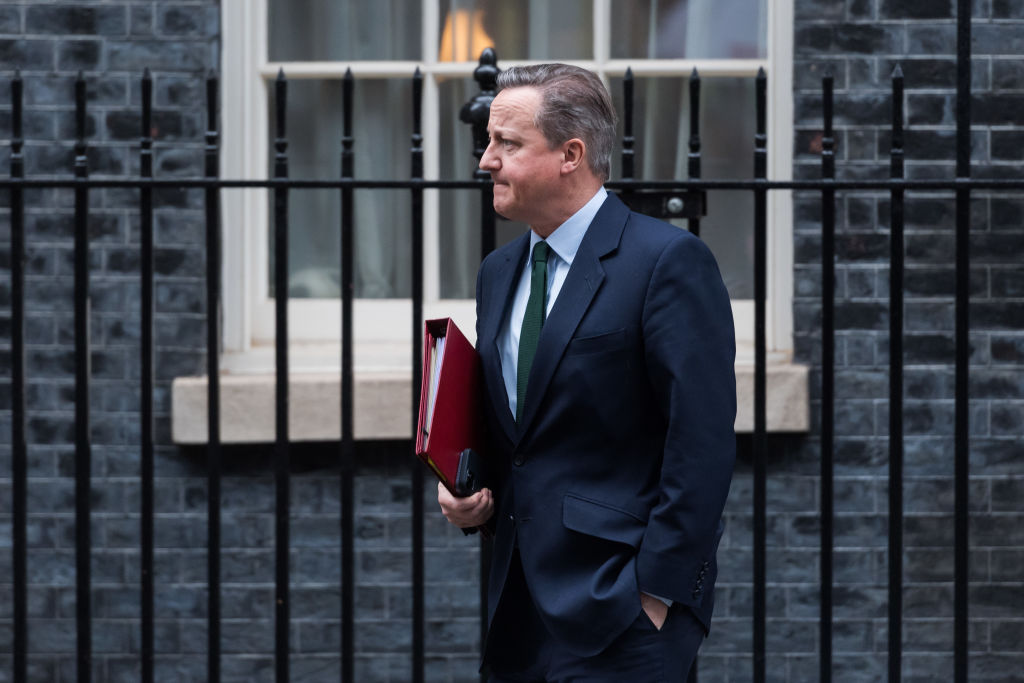
The U.K. would consider recognizing a Palestinian state to create “irreversible progress” toward an end to the Israel-Palestinian conflict, David Cameron, the country’s foreign secretary and former Prime Minister, said on Monday at a reception for Arab Ambassadors in London.
“We have a responsibility there because we should be starting to set out what a Palestinian state would look like; what it would comprise; how it would work,” Cameron said. “As that happens, we, with allies, will look at the issue of recognizing a Palestinian state, including at the United Nations.”
Currently, 139 of the 193 U.N. member states recognize Palestinian statehood. Most of the countries that do not are Western countries like the U.S., the U.K., Australia, New Zealand, and most Western European countries.
“There is a path that we can now see opening up where we really can make progress, not just in ending the conflict, but progress in finding a political solution that can mean peace for years rather than peace for months,” Cameron said.
The comments come as the U.K. and other Western allies step up efforts to end Israel’s war on Gaza, which has killed at least 26,000 Palestinians since the Oct. 7 Hamas attack killed 1,200 people. The U.K. has released a five-point plan to end the war, including the creation of a technocratic Palestinian government in Gaza and the West Bank, the release of all hostages, and security guarantees for Israel.
Cameron also said that the U.K. would like to see a two-state solution implemented in the region that ends the conflict for good and is based on 1967 borders.
A two-state solution faces major obstacles including the latest fighting. Israeli Prime Minister Benjamin Netanyahu has vowed to continue the military campaign and pursue “total victory” against Hamas, a move analysts say is improbable.
Netanyahu has strongly opposed a two-state solution. In December, he said that he was “proud” to have prevented the establishment of a Palestinian state, comments that put him at odds with decades of U.S. policy in the region.
Cameron is set to fly to the Middle East on Wednesday, starting with a visit to Oman. Houthi rebel attacks on international shipping are expected to be “a major focus of his discussions,” according to a press release from the British government.
More Must-Reads from TIME
- Cybersecurity Experts Are Sounding the Alarm on DOGE
- Meet the 2025 Women of the Year
- The Harsh Truth About Disability Inclusion
- Why Do More Young Adults Have Cancer?
- Colman Domingo Leads With Radical Love
- How to Get Better at Doing Things Alone
- Michelle Zauner Stares Down the Darkness
Contact us at letters@time.com